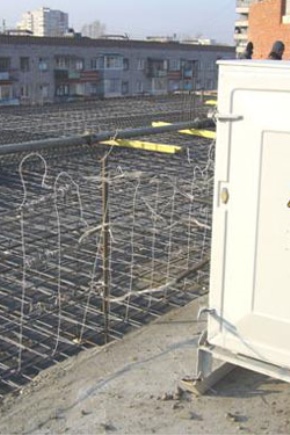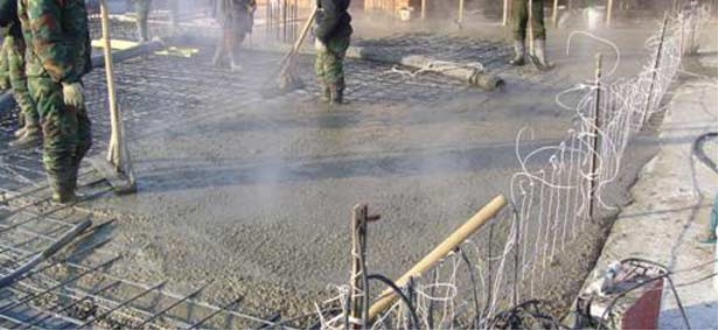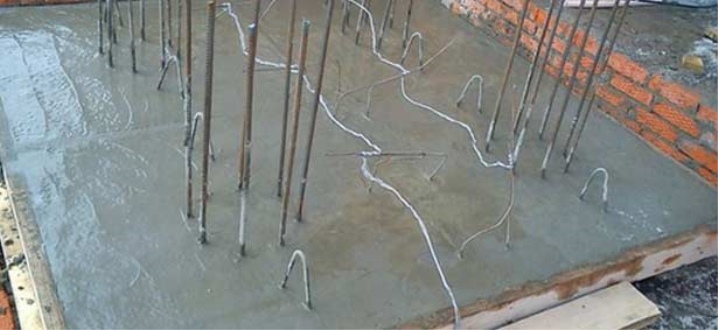Heating up concrete

Heating of concrete is used for concreting those structures, the construction of which is supposed to be carried out when the temperature is below +5 degrees Celsius.
The main goal is to prevent the freshly laid material from freezing around the reinforcement. It is also very important to prevent the formation of ice films.
There are two main methods that are most often used to heat concrete. It:
- Heating loops PNSV;
- Electrode loops.
Electrode method
This technique consists in the fact that heat is released into concrete due to the direct passage of an electric current through it. In fact, this method is fully consistent with the principle of an army boiler. Most often, this technique is used when you need to warm up the walls. In some cases, it is also suitable for floors where it is not possible to use a heating loop. In addition, it can be used before pouring concrete into the formwork.

Advantages
- The mixture heats up quickly;
- Easy to install and reliable.
disadvantages
- Due to the high current, it requires that a large electrical power can be provided on the site.
- When the concrete dries up, the heating stops. To resume, you need to increase the voltage.
Heating loops
Most often used for floors and much less often for walls. This is due to the fact that to warm up the walls, you need to significantly reduce energy consumption.
The very process of power supply of electrodes and loops (i.e. heating elements) is carried out through the use of a step-down transformer. It has several undervoltage stages that allow you to monitor the heat output and adjust it depending on how the outside air changes.

Advantages
- The temperature is maintained regardless of whether the concrete is dry or not.
- Reduced energy consumption when compared with the electrode method.
disadvantages
- Difficulties may arise during calculations and installation.
- There is a possibility of damage to the insulation.
other methods
There are other ways as well:
- Induction.
- Infrared.
- Heating with a heating formwork.
They are rarely used.













The comment was sent successfully.